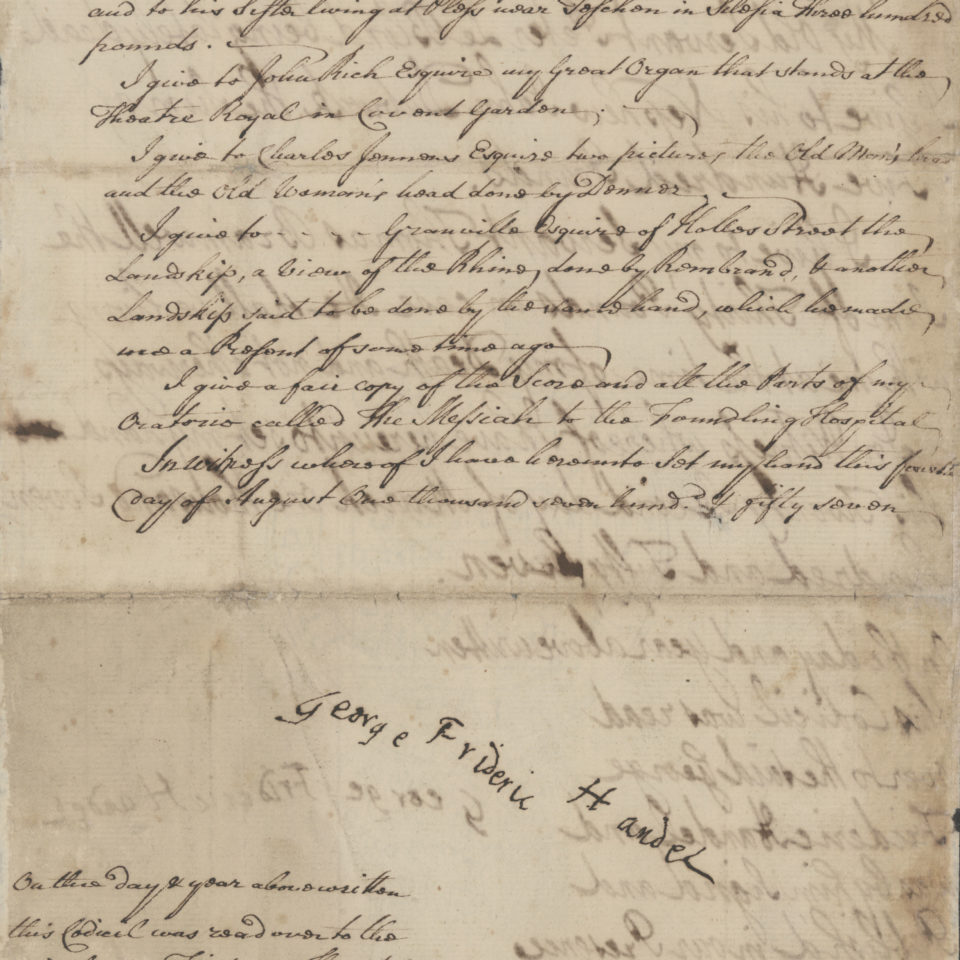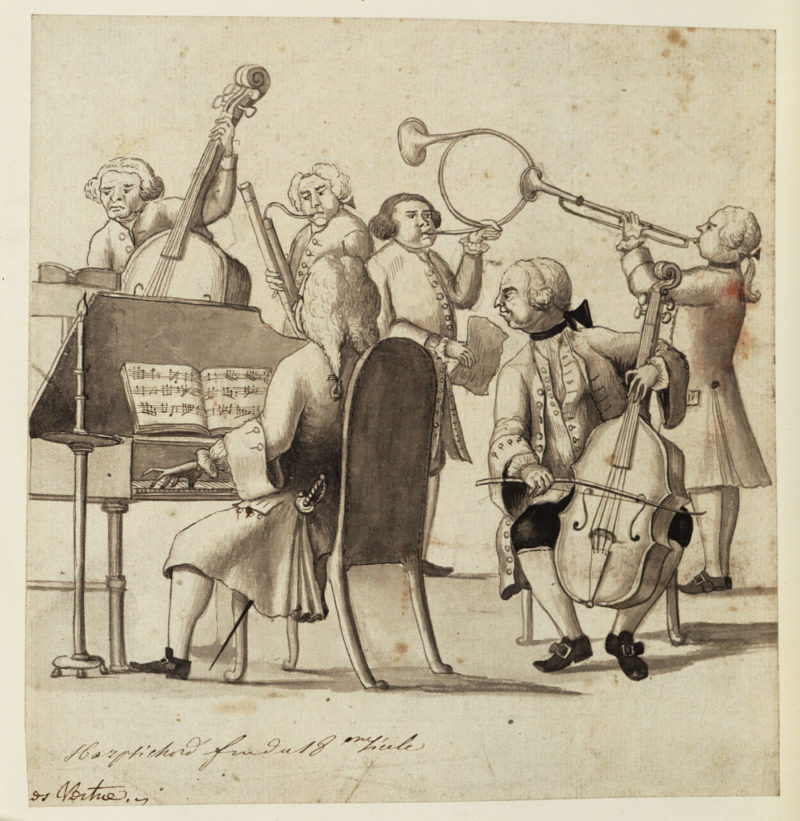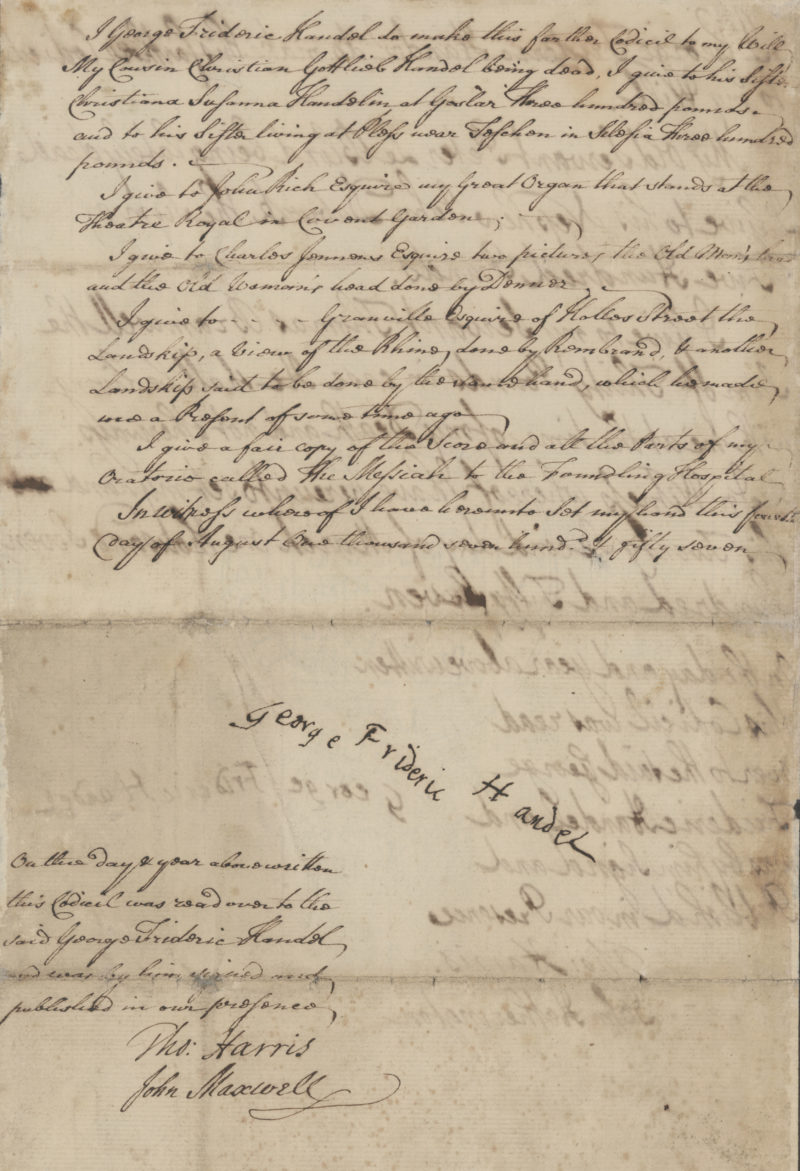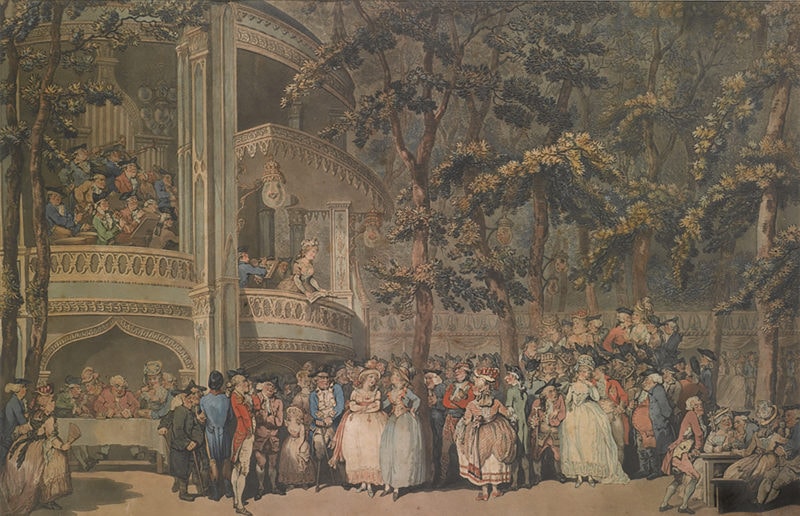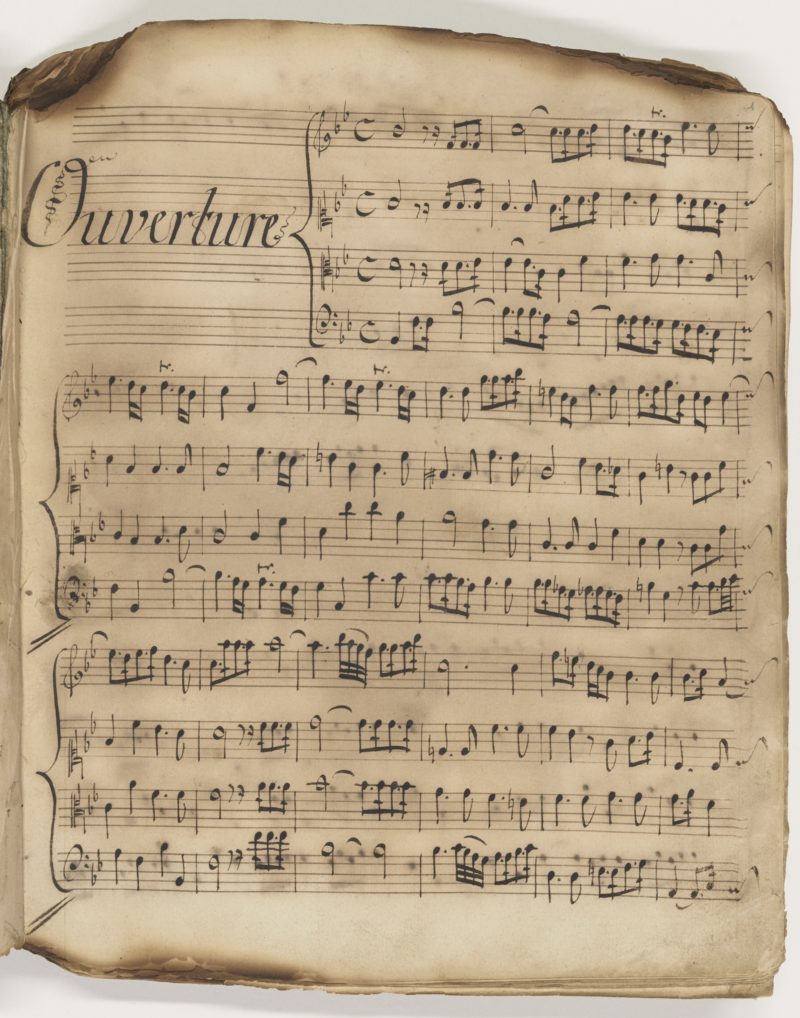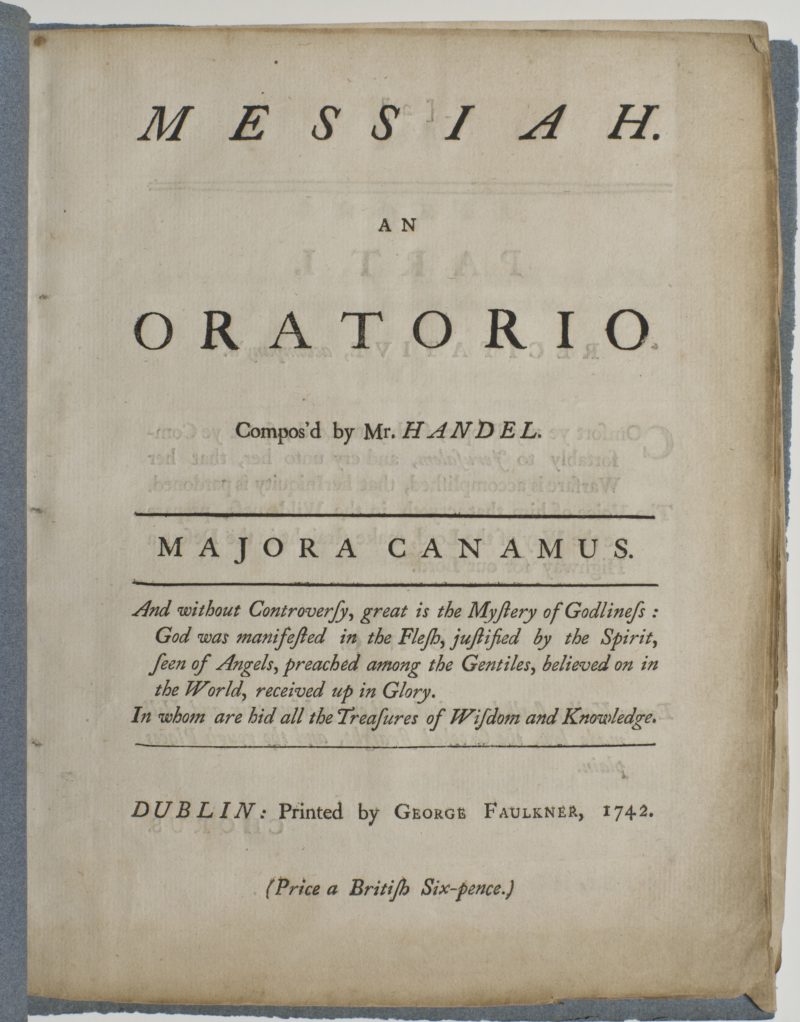The Collection includes manuscript and printed music and documents, books, journals, libretti, sound recordings, artworks and artefacts, and an important collection of performance ephemera relating to Handel and his circle. Handel’s singers, patrons, friends and working environments are well represented, making the collection a rich resource for 18th-century musical studies. There are periodicals and collected editions, together with modern scores and literature, and the ephemera includes concert tickets, playbills, newspaper cuttings, programmes and advertisements from the 18th century to the present day, only a small number of which are on display in the Museum’s Handel gallery at any time.
Manuscripts include autograph letters from Handel, his librettist Charles Jennens, and others, as well as the earliest surviving score of his opera Teseo and numerous contemporary manuscript scores including those formerly belonging to the Earl of Shaftesbury. There are many items relating to the earliest Messiah performances, including wordbooks for the first performance, and the first published score of songs from the Messiah. These complement Handel’s bequest to the Foundling Hospital of the score and performance parts of the oratorio, on loan from Coram, which are now in the library. A highlight of the collection is Handel’s autograph will; written in 1750, it was later supplemented by four codicils, including one dated 4 August 1757 which includes his bequest to the Foundling Hospital of ‘a fair copy of the Score and all Parts of my oratorio called The Messiah’.
Major works of art include oil paintings of Handel, Charles Jennens, the singers Richard Leveridge, Anna Maria Strada and John Beard, and Zoffany’s portrait of John Christopher Smith the younger. There are hundreds of prints and engravings of contemporary composers and performers, including watercolours by Rowlandson, as well as ceramic and bronze busts of Handel and a terracotta modello by Roubiliac for the monument to the composer in Westminster Abbey. Smaller items include a porcelain model of the singer Kitty Clive and numerous medals, tokens and memorabilia issued for various festivals from the 18th to the 21st centuries.
Gerald Coke (1907-1990) was a businessman who created his collection over 60 years. It was bequeathed to the State in lieu of tax by his widow in 1995, and formally allocated to the Foundling Museum in 2008. The Collection continues to grow, supported by an endowment managed by the Gerald Coke Handel Foundation, and a reading room provides access to scholars and students.
In April 2019 the Gerald Coke Handel Collection Librarians were awarded the Excellence Award for Music Libraries from the UK and Ireland branch of the International Association of Music Libraries, Archives and Documentation Centres (IAML).
Catalogue & resources
Explore our detailed catalogue online, including many digitised images of the Gerald Coke Handel Collection.
Further useful research resources for study of Handel can be found here.
The Collection staff publish an annual Handbook for Studies in 18th-century English Music, as well as occasional publications. Details can be found here. The Collection collaborates with the Handel Documents project at the Open University, supported by the Handel Institute.
Hear our Gerald Coke Handel Collection Librarian, Katharine Hogg, talk about the Collection in this video produced in collaboration with the London Handel Festival and the Open University.
